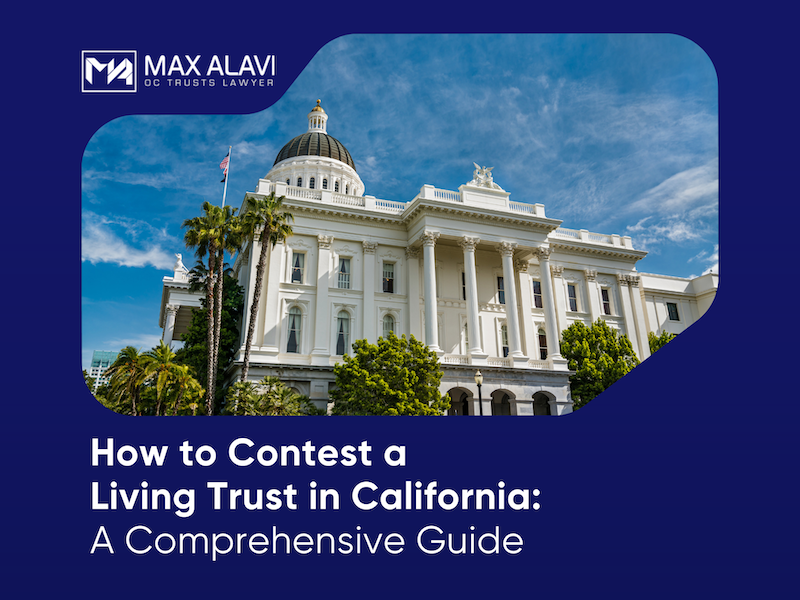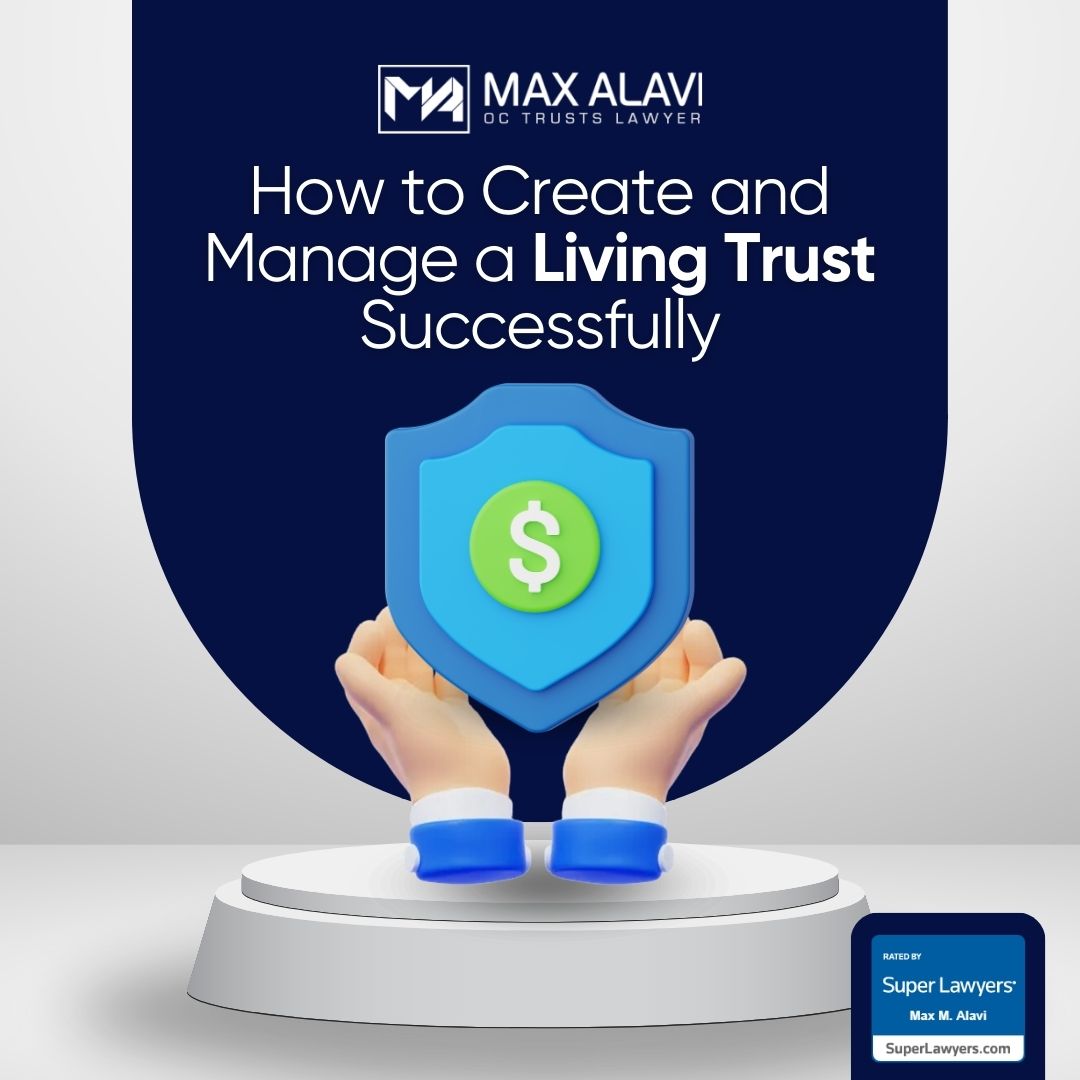Contesting a trust in California can be complicated because of the state’s complex probate system. It’s important first to understand how living trusts work and the main reasons why it might be advantageous to contest one. Additionally, a living trust attorney can advise you on how to contest a trust, from the initial evidence collection through discovery, mediation, and post-trial court orders. Learn more about the process from the California trust and estate litigation attorneys at OCTrustslawyer.com.
How to Contest a Trust in California
Trusts provide one of the most effective ways to pass monetary assets to designated heirs or beneficiaries, potentially allowing your surviving loved ones to avoid the probate process altogether.
In some situations, however, you may be named in a trust with which you have an issue or dispute. In these instances, you may launch a formal, legal challenge to the trust.
In California, this process is governed by several specific laws and regulations. As such, the best way to contest a trust is to seek counsel from an experienced trust litigation attorney.
Understanding Living Trusts in California
First and foremost, it can be helpful to remember exactly what a living trust is and how it functions within the broader context of estate planning.
A living trust is a document that allows you not just to name your heirs and beneficiaries (as with a will), but also to set aside the assets that will be passed down. These assets are managed by an appointee known as the trustee. A living trust can be administered without the involvement of the probate court, meaning your wishes can be upheld, the total value of your assets preserved, and your confidentiality maintained.
Reasons for Contesting a Trust in California
One of the main goals of a living trust is to help your heirs and beneficiaries avoid convoluted legal processes. If someone wishes to dispute the trust, however, then court involvement can’t be avoided.
There are several reasons why you might speak with a trust litigation attorney about contesting a trust. Some of the most common motives to contest a trust include:
Lack of clarity in the language of the trust.
Questions about the mental state of the grantor (e.g., the person who made the trust).
Allegations of fraud or undue influence over the terms of the trust.
To address these or any similar issues, it’s imperative to consult with a trust litigation attorney.
Initial Assessment and Gathering Evidence
If you decide to contest a trust, the first step will be meeting with your lawyer. A trust litigation attorney will review the trust document with a fine-toothed comb, looking for any errors or ambiguities that could be used to build your case.
Additionally, you’ll want to gather other supportive evidence to back your claim. For instance, if you’re alleging that the grantor was not in the right mind to draft or revise their trust, relevant medical documents can be helpful.
Filing a Lawsuit in a California Court
To file a lawsuit, your trust litigation lawyer can provide invaluable guidance.
For your suit to be taken up by the court, you’ll need to name the appropriate defendant(s) accurately. Additionally, it’s essential to choose the correct venue and jurisdiction in the State of California.
In addition to filing paperwork with the court, you may be asked to pay some preliminary court fees.
Serving Notice to Interested Parties
Another essential part of the legal process is serving notice to all interested parties. Typically, this means anyone named in the trust, including all named heirs and beneficiaries. Your attorney can advise you on the most efficient way to do so.
Once you provide notice to everyone named in the trust, those parties will have a period of 120 days to prepare their arguments or to engage with your lawsuit. In some instances, they may be able to file for an extension beyond 120 days successfully.
The Discovery Phase
One of the most important steps in contesting a trust is the discovery phase. If you’re the one bringing the suit, this may be one of the more satisfying parts of the entire process, as it allows you to present your evidence and state your case.
Be aware that the other heirs and beneficiaries may bring pretrial motions, objecting to your suit or trying to reset its terms. Your trust litigation attorney can help you handle these pretrial motions effectively and in full accordance with California probate law.
Mediation and Settlement in California
In some situations, you may be able to sidestep a full trial in favor of mediation and settlement. Some judges in California will require the parties involved to attempt mediation before a full trial can proceed.
Some things to keep in mind about mediation:
- Everything said during mediation is confidential and cannot be used in litigation (should proper litigation proceed).
- While a mediator is involved in this process, he or she cannot “decide” in anyone’s favor. Their role is persuasion, not rendering judgment.
- Mediation usually doesn’t involve one party winning and the other losing. Instead, it’s a compromise, with both parties getting some of what they want but surrendering other things.
Going to Trial
If your case does proceed to trial, you can anticipate that it will likely be a bench trial, meaning you appeal directly to a judge and not a jury. There are exceptions to this, mainly if the case involves allegations of elder abuse, but bench trials are far more common in California.
Simple trust litigation cases take just a day or two, but a more complex case may involve several days or even weeks. Your trust litigation attorney can provide you with a clearer sense of how long your specific trial is likely to last.
The trial’s outcome will likely be a series of court orders, which are carefully enforced in California. The court may order certain assets to change hands or transfer into the name of another party.
Consult with Expert Trust & Estate Litigation Attorneys in Southern California
Contesting a trust can be an arduous process, but it may be necessary in some cases to protect one’s rights and interests. Working with skilled California trust and estate litigation attorneys can help achieve the best possible outcome.
We invite you to contact OCTrustslawyer.com to receive legal guidance that’s tailored to California’s legal landscape.






